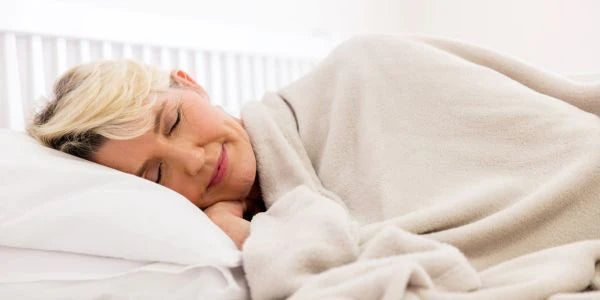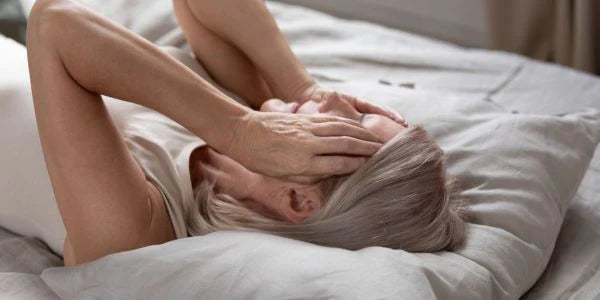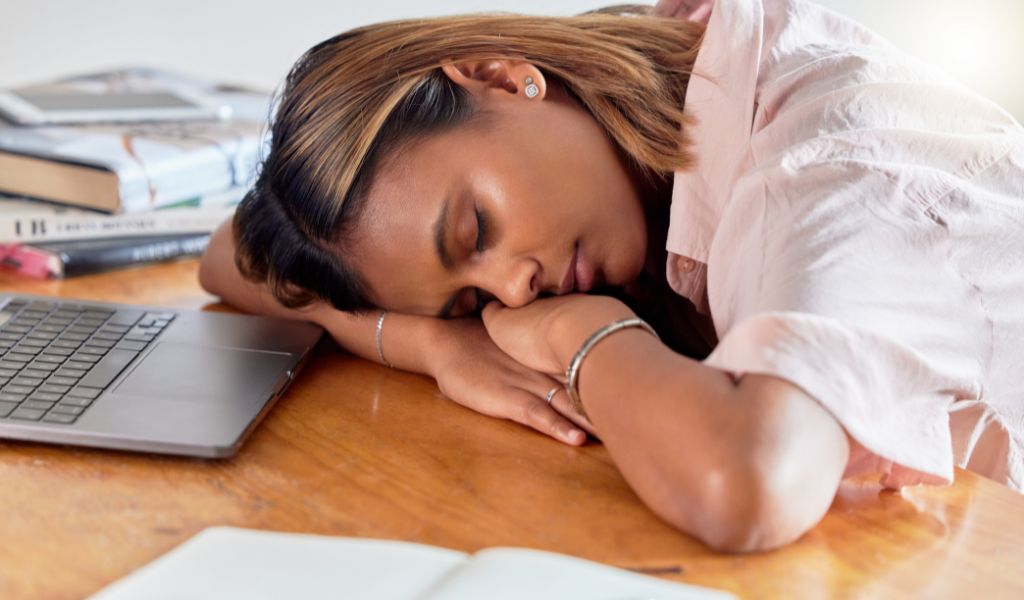If you're tired of feeling hot and sticky every night, try wearing light and breathable sleepwear to keep cool.
You can also try a cooling pillow or mattress topper. And don't forget to hydrate!
A humidifier can keep the air in your room moist and prevent you from feeling dehydrated middle of the night.

2. Feeling Anxious? Put Your Phone Down.
Exposure to the blue light emitted by electronic devices can interfere with your body's natural sleep-wake cycle and increase anxiety.
So, don’t go on your phone for at least an hour before bed; instead, take a bath, journal your anxious thoughts or read a novel. Not a big reader? Try audiobooks instead!

3. Relief From Restless Legs
Stretch before bed, soak in a warm bath, and avoid stimulants like caffeine and nicotine.
You can also try massaging your legs before bed or using heat or ice therapy to help alleviate discomfort.
Compression socks can help improve circulation and reduce symptoms of restless leg syndrome.
They can be worn during the day or at night while sleeping.

4. Say Goodbye To Sleep Apnea
Sleeping on your back can worsen sleep apnea symptoms, as it can cause your tongue and soft palate to collapse and block your airway.
Sleeping on your side can help keep your airway open and reduce symptoms. Elevating your head can help reduce snoring and improve breathing during sleep.
Try propping up your head with a pillow or using a wedge pillow to elevate your upper body.

5. Restore Your Natural Sleep Cycle
Try to avoid caffeine and limit alcohol consumption, especially before bed.
Regular exercise can help promote better sleep quality, as long as it's not done too close to bedtime.
Finally, go to bed at the same time every night and wake up at the same time each morning to support your natural body clock.




